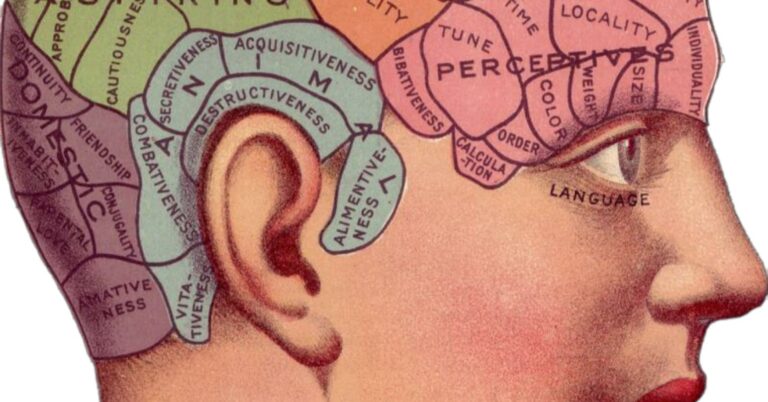The Israeli-Palestinian conflict is one of the world’s most enduring and deeply entrenched conflicts. For decades, it has been marked by violence, mistrust, and political impasses.
Having experienced war and displacement during my childhood, and now working as a mental health clinician, I draw from both academic knowledge and personal memories of adversity, including war and trauma.
In this post, we will embark on a journey that explores the incredible power of empathy, compassion, and conflict resolution techniques from a psychological perspective within the context of the Israeli-Palestinian conflict. These psychological approaches offer a glimmer of hope, a lifeline of sorts, in a world increasingly divided and marred by misinformation.
Let’s start by delving into the transformative power of empathy because its genuine and heartfelt essence can take anyone far beyond mere survival. Empathy, often considered the cornerstone of compassion, plays a pivotal role in conflict resolution. It goes beyond mere understanding; it involves truly sharing the feelings of others, seeing the world through their eyes. In the context of the Israeli-Palestinian conflict, empathy can bridge the seemingly insurmountable gap that divides these two communities. It requires us as individuals to transcend our own perspectives, to acknowledge the suffering and experiences of the other side.
In the Israeli-Palestinian context, empathy can humanize the “other.” If the world comes together and genuinely empathizes with each other’s pain, it creates a space where the blood of a Palestinian child is as precious as that of an Israeli child. This kind of empathy involves active listening without judgment to the narratives of both sides. By doing so, we can develop a more nuanced understanding of the historical, cultural, and emotional aspects of the conflict, a critical step toward building compassion.
Compassion, often referred to as empathy in action, takes us a step further. It is the desire to alleviate the suffering of others. In the context of the Israeli-Palestinian conflict, compassion means recognizing the shared humanity between the two sides and actively working to alleviate the pain experienced by both parties.
This means more than just coming together as one to save what’s left of humanity. It means viewing the Israeli mother who has lost her child in the same light as the Palestinian mother who buried her child due to this conflict. It means acknowledging that pain is universal, irrespective of nationality. Compassionate actions can manifest in various forms, from humanitarian efforts such as providing medical aid and food assistance to promoting dialogue and peace education initiatives that emphasize shared values and the importance of peaceful coexistence. Moreover, it means becoming selective with our political leaders, choosing those who demonstrate compassion and set an example for their constituents, inspiring a shift towards more peaceful and conciliatory attitudes.
Psychological conflict resolution techniques, such as negotiation and mediation, can play a vital role in resolving the Israeli-Palestinian conflict. These methods aim to identify common ground and foster mutually beneficial solutions, demanding a commitment to dialogue and compromise.
In times when conflicts seem insurmountable, remember that conversations can lead to breakthroughs. Negotiation doesn’t mean taking one side or censoring certain voices; it involves sitting down at the table to discuss issues, grievances, and potential solutions. It can be a challenging process, given the deeply entrenched positions of both parties. However, skilled negotiators and a commitment to open, honest, and constructive dialogue can lead to breakthroughs.
For instance, history has shown that negotiations and dialogue have resulted in significant breakthroughs in other conflicts. In the case of the Good Friday Agreement in Northern Ireland, years of negotiations between conflicting parties ultimately led to a peaceful resolution and an end to decades of violence. Similarly, in South Africa, negotiations between Nelson Mandela and the apartheid government helped pave the way for a peaceful transition to majority rule.
Psychological approaches to conflict resolution are promising for the Israeli-Palestinian conflict. They provide a pathway to fostering understanding and peace by addressing the emotional and human dimensions of the conflict. The truth is that the leaders of organizations like Hamas and the Israeli government often live in safety, far from the conflicts that have plagued the everyday people of Gaza and Israel for years.
It’s the ordinary people who bear the brunt of the suffering. This means, more than ever, the Muslim and Jewish communities must come together to foster peace, love, and compassion. These approaches can encourage a paradigm shift. Instead of focusing solely on political solutions, they consider the psychological and emotional needs of the individuals involved. It means recognizing the importance of acknowledgment, validation, and emotional healing, all of which are critical steps toward lasting reconciliation.
This means, I, as a Muslim, tell my Jewish friends that I stand with them and the people of Israel and want them to have a land of their own, a free nation. And the people of Israel and Jewish people tell their Muslim friends and the people of Palestine that they stand with them and that the people of Palestine too are entitled to a free and peaceful land of their own.
The Israeli-Palestinian conflict is deeply rooted in history, politics, and emotions, making it one of the world’s most complex challenges. While solving it is an immense undertaking, by nurturing empathy, compassion, and actively seeking peace through negotiation, mediation, and our common humanity, there is a chance for a future where Israelis and Palestinians can coexist harmoniously, side by side.
This transformative journey toward unity for humanity begins with small steps. The more people from diverse backgrounds come together to bridge gaps, the stronger the foundation for lasting peace becomes. It’s a testament to the enduring power of the human spirit, the ability to empathize and show compassion, and the capacity for dialogue and understanding.
In this divided world, we must recognize that our shared humanity transcends borders, politics, and conflicts. We must believe that empathy, compassion, and psychological conflict resolution are not just ideals but essential tools for shaping a better world.
As we navigate the turbulent waters of our times, let us hold on to the belief that, ultimately, the human desire for unity and peace can overcome even the most deeply entrenched divisions. The Israeli-Palestinian conflict may be enduring, but it is not insurmountable. Together, through empathy, compassion, and the commitment to a shared humanity, we can pave the way for a brighter and more harmonious future for all.


















+ There are no comments
Add yours